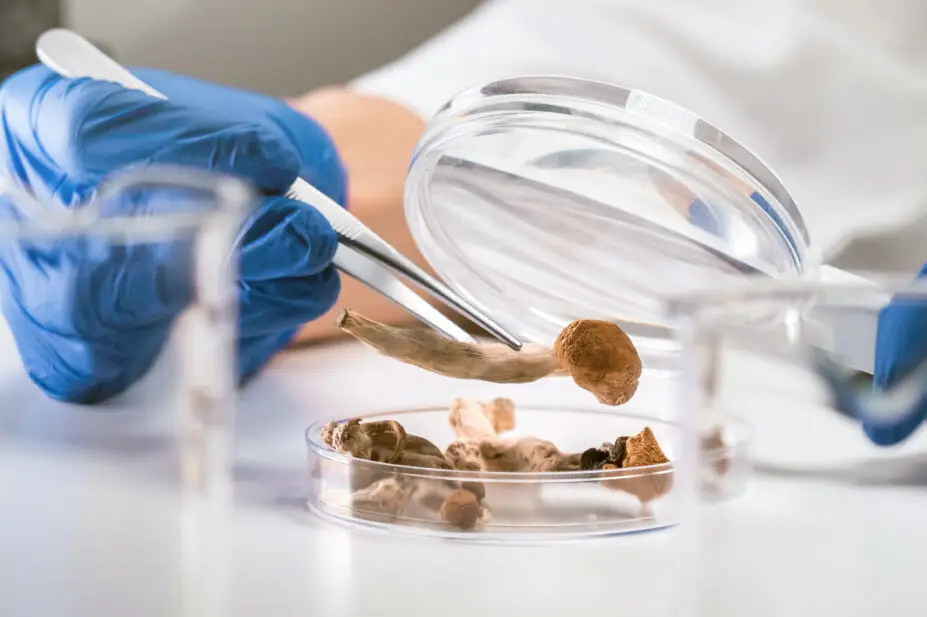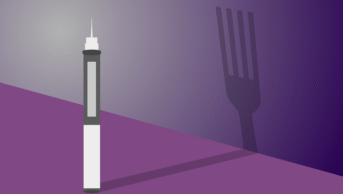
Shutterstock.com
Psilocybin could be as effective as escitalopram — a selective serotonin reuptake inhibitor (SSRI) — in treating depressive symptoms, a study has found.
A systematic review and network meta-analysis, published in the BMJ on 21 August 2024, looked at 19 placebo-controlled studies of oral monotherapy with either psychedelics (psilocybin, lysergic acid diethylamide, MDMA and ayahuasca) or escitalopram.
Most of the studies were conducted between 2011 and 2023, with one study from 2002 included. In the meta-analysis, authors looked for changes in depressive symptoms from baseline, according to Hamilton Depression Rating Scale 17 (HAMD-17) scores.
The study concluded: “Of the available psychedelic treatments for depressive symptoms, patients treated with high dose psilocybin showed better responses than those treated with placebo in the antidepressant trials, but the effect size was small.”
To measure the effectiveness of interventions, the authors calculated the mean difference to see if any exceeded the minimal important difference (MID): estimated to be between 3 and 5 on the HAMD-17 scale.
The review found that the placebo response in psychedelic trials was lower than that in antidepressant trials of escitalopram (mean difference −3.90 [95% credible interval −7.10 to −0.96]).
Although most psychedelics were better than placebo in psychedelic trials, only high dose psilocybin was better than placebo in antidepressant trials of escitalopram (mean difference 6.45 [3.19 to 9.41]).
The relative effect of high dose psilocybin was larger than escitalopram at 10mg (4.66 [95% credible interval 1.36 to 7.74]) and 20mg (4.69 [1.64 to 7.54]).
However, the authors caution that psilocybin was usually administered with psychotherapy or psychological support, and “therefore, the greater effectiveness of psilocybin may be from not only pharmacological effects but also psychotherapeutic support”.
Among other limitations of their study, the authors point out that it did not look at long-term effects of either psychedelics or escitalopram, and that the sample sizes of the psychedelic trials were small.
Steve Bazire, honorary professor at the University of East Anglia School of Pharmacy, said the analysis “is interesting in that it concludes that psilocybin at higher dose does work in treatment resistant depression (TRD)”, but raised a few questions.
“The psychedelic studies have virtually all been carried out in people with long-standing TRD, whereas the five escitalopram studies would have been carried out in a different, not resistant, cohort, witnessed by the much lower placebo response in the psychedelic studies showing a more resistant cohort,” he said.
“One study in PTSD looked only at the depressive symptoms associated with PTSD, rather than depressive symptoms as such,” he added.
Bazire said: “As the paper mentions, psilocybin has been approved for depression [in Australia, in 2023]. The reason for this is that psilocybin is being supported and managed by a mental health charity, thus reassuring the regulators that there is no ‘Big Pharma’ influence or promotional bias.
“So, yes I can see psilocybin being available in the UK eventually, and those of us trying to deal with TRD should be pleased.”
As well as depression, psilocybin is also being investigated for its potential to treat anorexia nervosa. Speaking to The Pharmaceutical Journal in March 2023, Hubertus Himmerich, a clinician and researcher at King’s College London, said: “We think that the ‘stuckness’ and the rigidity in thinking in anorexia can be overcome by the treatment with psilocybin.”


